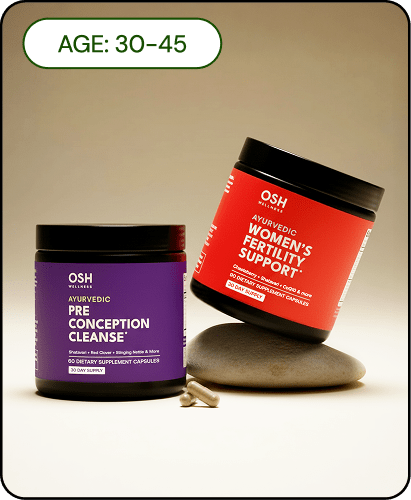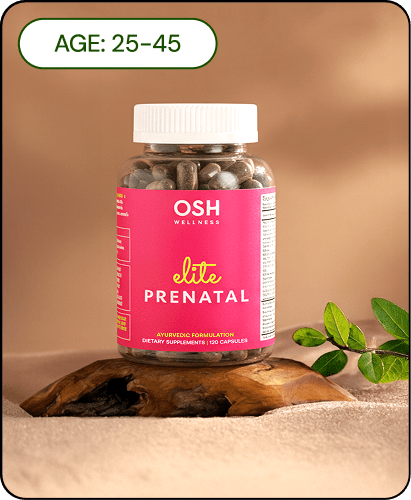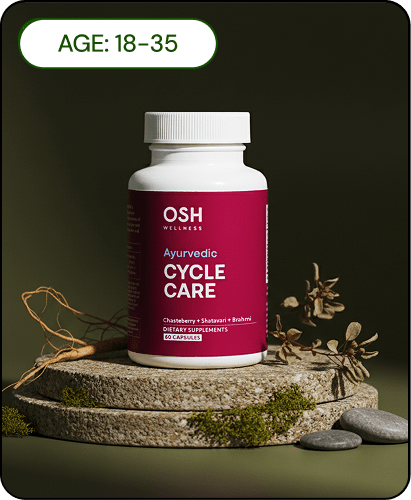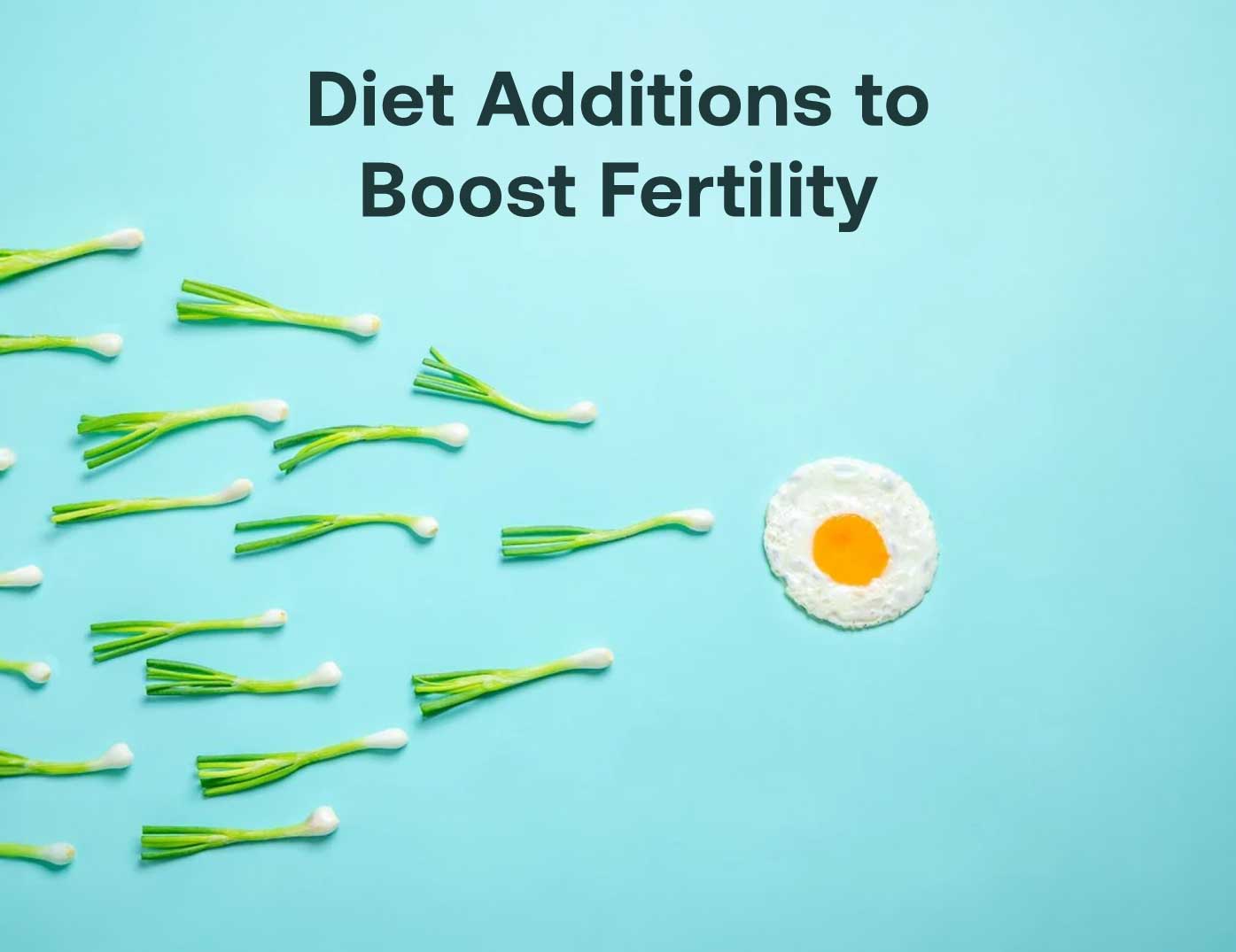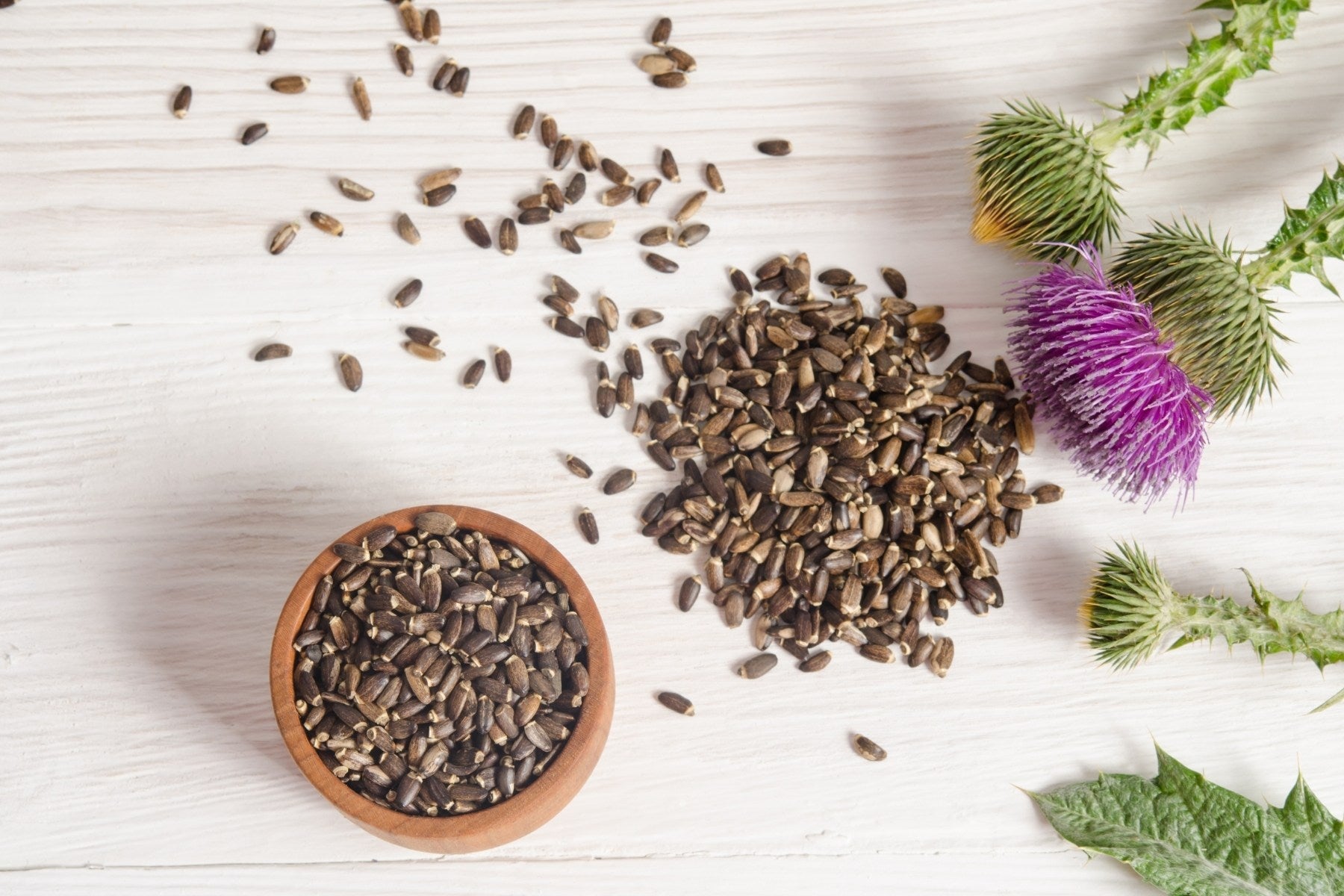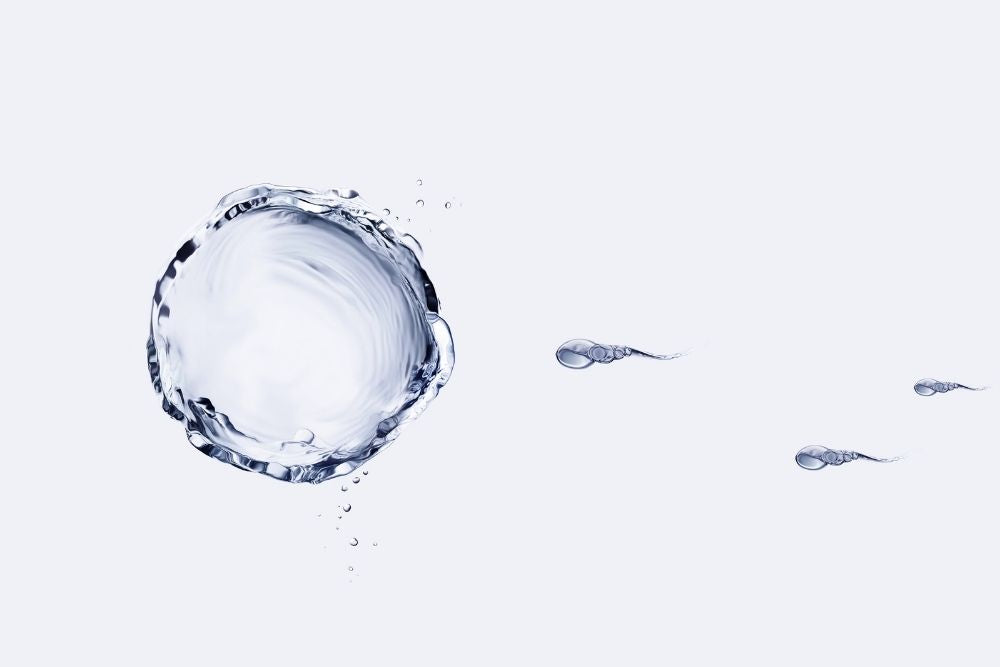Table of content
Fertility Diet for Her

1. Seeds - Pumpkin, Flax, Sunflower, and Sesame
Seed cycling is the natural method of eating certain seeds at specific points during your menstrual cycle to help balance your levels of estrogen and progesterone. Promoting this balance can help boost fertility, regulate your cycles, and relieve physical and emotional PMS symptoms.
You should eat a combination of pumpkin seeds and flax seeds during the first half of your cycle, which for some women can be days 1-14. Known as the follicular phase, this is when your estrogen is surging. Rising estrogen levels begin with the first day of your period, continue as your egg matures, and peak at ovulation.
Pumpkin and flax seeds are thought to boost estrogen production. They also contain a healthy amount of fiber, which can be beneficial for estrogen metabolism.
During the second half of your cycle, which may be days 15-28, you should eat sunflower seeds and sesame seeds. This part of your cycle is the luteal phase, when your progesterone starts to rise to prepare your womb for egg fertilization. It begins after ovulation and continues until the start of your period if the egg is not fertilized.
Sunflower seeds and sesame seeds are believed to support progesterone production due to their high concentration of micronutrients, like lignans, and essential fatty acids.
It is suggested that you only need one tablespoon of each seed type per day. However, the smaller seeds should be ground so that you can receive the full benefits of their oils.
2. Tropical Fruits - Mango, Guava, Papaya, Avocado, and Pineapple
Many tropical fruits are wonderful sources of antioxidants, vitamins, and minerals that are beneficial for fertility.
Papaya is abundant in antioxidants that may help you maintain healthy egg quality. Vitamins A, C, and E are also good for your overall health. The folic acid found in papaya can not only help with fertility but also support a healthy pregnancy. Many experts recommend that ,women begin increasing their folic acid one month before trying to conceive.
Mangoes have plenty of antioxidants and vitamins as well. They also contain vitamin B6 which is thought to help promote a regular and healthy menstrual cycle. Pineapple has bromelain, in addition to its many other vitamins, minerals, and antioxidants. Bromelain is a powerful anti-inflammatory and digestive aid and may help calm fertility health issues. However, it is advised to only eat a few slices of pineapple a day, only after ovulation and until menstruation.
Avocados are full of healthy fats. These monounsaturated fats, along with avocados' Vitamin E content, may improve the lining of the uterus. Their healthy fats and phytonutrients are also effective at decreasing inflammation and protecting your cells.
Finally, guava is an all-around superfood. This fruit is packed with lycopene, antioxidants, folate, Vitamin C, manganese, magnesium, and other B vitamins. All of these nutrients can have a positive effect on many different body processes, including reproduction. Guava is believed to be stress-reducing, immune-boosting, digestive-promoting, and cell-protecting. All of these qualities make it excellent for women who are trying to conceive.
3. Tonics & Tea
Ashwagandha is an adaptogenic herb that is commonly added to tonics. Adaptogenic means that it helps to counteract the effects that stress can have on your body. Ashwagandha may help encourage calmness and sleep as well as boost your immune system. In Ayurveda, it is believed to promote fertility, along with having a positive effect on menstruation and libido.
Red raspberry tea is another great beverage to sip on when you are trying to conceive. It is rich in Vitamins B and C, magnesium, zinc, iron, and potassium. These nutrients can help improve your immune function and reduce inflammation. It also possesses Phyto-progesterone characteristics that can boost progesterone, enhance fertility, and strengthen a woman's uterus.
Shatavari is well known, and commonly used in Ayurveda for promoting female fertility and maintaining healthy reproductive system. It is known to regulate estrogen and support the production of luteinizing hormone, which is responsible for triggering ovulation. Shatavari can thus be helpful in regulating menstrual cycles, which can important for conceiving.
Fertility Diet for Him

1. Ghee
Ghee, a type of clarified butter, has many of the health benefits of butter without its impurities. It is both fatty and nutritious. Ghee is thought to increase sperm count and quality in men. It is also beneficial for your immune system. One tablespoon can be mixed with one cup of warm milk and taken daily.
2. Shilajit
Ghee can also be mixed with Shilajit to make a tonic. Shilajit comes from rocks in the Himalayas and has long been used in Ayurvedic medicine. It has numerous health benefits but is especially adept at helping increase sperm quality and sperm count. Its anti-aging properties may also help with other issues that can plague a man's fertility as he ages, such as a decrease in libido.
3. Nuts
Nuts, like almonds and brazil nuts, are packed with zinc and Vitamin E. Both of these nutrients are necessary for quality sperm production. One study found that the consumption of nuts increased male sperm vitality, shape, size, and motility by sixteen percent. Eating nuts, especially mixed nuts, also resulted in less fragmented-DNA, which means the sperm were healthier and better equipped to travel to the uterus and egg.
4. Ashwagandha and Shatavari
Ashwagandha may help boost fertility in men and promote reproductive health. In a 3-month study done on men experiencing infertility, taking 5g of ashwagandha daily was shown to increase sperm count and motility.
Shatavari can also help male infertility, supporting low sperm count. Its cooling properties balance the warming properties of other herbs like ashwagandha and shilajit that are used to improve sperm count. Ashwagandha and Shatavari thus make an ideal combination to be introduced together in daily nutrition.
5. Spinach
Spinach, and other dark leafy greens, are full of zinc and folic acid. Folate isn’t only important for women, but also men. It is believed that folic acid when combined with zinc, has a positive effect on both sperm quality and motility. When you combine these nutrients with Vitamin C, which is also found in spinach, there is an increase in sperm count as well.
A Balanced Diet
The above additions should be made to a balanced diet. When you are trying to conceive, both partners need to eat plenty of fruits and vegetables, consume healthy fats in moderation, and eat an adequate amount of complex carbs. Cutting down on sugars, processed foods, and caffeine is also beneficial.


